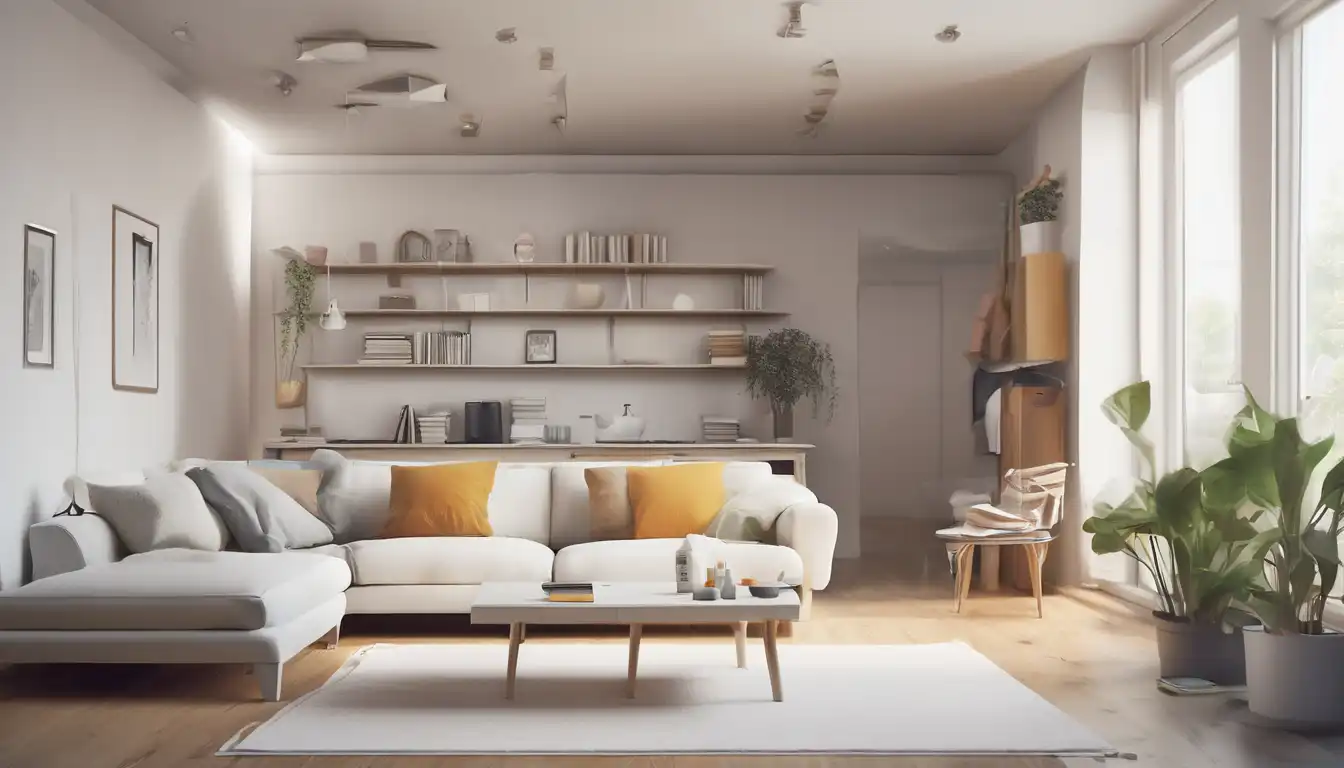Transform Your Space and Mind with Minimalist Living
Minimalist living represents more than just an aesthetic choice—it's a transformative lifestyle approach that can significantly reduce stress, increase focus, and create more meaningful living spaces. By embracing minimalist principles, you can eliminate the physical and mental clutter that often overwhelms modern life. This comprehensive guide provides practical strategies to help you achieve a clutter-free existence that aligns with your values and priorities.
Understanding the Core Principles of Minimalism
Before diving into practical tips, it's essential to grasp the fundamental philosophy behind minimalist living. Minimalism isn't about deprivation or living with nothing; rather, it's about intentionally choosing what adds value to your life and eliminating what doesn't. This mindset shift allows you to focus on quality over quantity, experiences over possessions, and purpose over accumulation. Many people find that adopting minimalist principles leads to greater financial freedom, reduced environmental impact, and improved mental clarity.
Start with a Strategic Decluttering Process
The first step toward minimalist living involves a thorough decluttering of your physical environment. Begin with one room or area at a time to avoid feeling overwhelmed. The popular "one in, one out" rule can help maintain balance—when you bring a new item into your home, commit to removing something else. Consider implementing the 90/90 rule: if you haven't used an item in the past 90 days and don't foresee needing it in the next 90, it's likely safe to let it go. For sentimental items, take photographs before donating them to preserve memories without maintaining physical clutter.
Create Functional Zones and Systems
Organize your living space into clearly defined functional zones to maintain order and efficiency. Designate specific areas for work, relaxation, cooking, and storage. Implement simple organizational systems that make it easy to maintain your minimalist environment. Use uniform storage containers, label everything clearly, and ensure every item has a designated home. This systematic approach prevents clutter from accumulating and makes cleaning and tidying more manageable. Remember that effective organization starts with having fewer items to organize in the first place.
Adopt Mindful Consumption Habits
Preventing clutter from entering your home is just as important as removing existing clutter. Develop mindful shopping habits by asking critical questions before making purchases: Do I truly need this item? Where will I store it? How often will I use it? Implement a 24-hour waiting period for non-essential purchases to avoid impulse buying. Focus on investing in high-quality, multi-functional items that serve multiple purposes rather than accumulating single-use products. This approach not only reduces clutter but also saves money and resources in the long term.
Digital Minimalism for Modern Living
In today's connected world, digital clutter can be just as overwhelming as physical clutter. Apply minimalist principles to your digital life by regularly cleaning up your devices, organizing files into logical folders, and unsubscribing from unnecessary emails and notifications. Limit your social media usage and curate your digital subscriptions to include only content that genuinely adds value to your life. Consider implementing digital detox periods where you disconnect from technology entirely to recharge and refocus.
Minimalist Wardrobe Strategies
Creating a capsule wardrobe is one of the most effective ways to embrace minimalist living. Start by purging your closet of items you haven't worn in the past year, don't fit properly, or no longer align with your personal style. Focus on building a collection of versatile, high-quality pieces that can be mixed and matched to create multiple outfits. Many people find that having fewer clothing options actually makes getting dressed easier and reduces decision fatigue. The key is choosing items that you genuinely love wearing and that make you feel confident.
Sustainable Minimalism and Environmental Impact
Minimalist living naturally aligns with sustainable practices by reducing consumption and waste. When you do need to purchase items, prioritize quality, durability, and ethical production methods. Consider buying secondhand when possible, and properly dispose of items you're removing from your home through donation, recycling, or responsible disposal. This approach not only benefits your personal space but also contributes to broader environmental conservation efforts. The connection between minimalism and sustainability creates a powerful combination for positive change.
Maintaining Your Minimalist Lifestyle
Sustaining a clutter-free life requires ongoing attention and commitment. Establish daily and weekly routines for tidying and organization to prevent clutter from accumulating. Regularly reassess your possessions and living space to ensure they continue to align with your minimalist goals. Remember that minimalism is a journey rather than a destination—your needs and priorities may evolve over time, and your approach to minimalism should adapt accordingly. Celebrate small victories and be patient with yourself as you navigate this transformative process.
The Psychological Benefits of Minimalist Living
Beyond the physical benefits of reduced clutter, minimalist living offers significant psychological advantages. Many practitioners report decreased anxiety, improved focus, and enhanced creativity. With fewer distractions and possessions demanding attention, you can devote more mental energy to relationships, hobbies, and personal growth. The clarity that comes from simplified surroundings often leads to better decision-making and increased productivity. This mental space created by minimalist practices can be truly liberating.
Customizing Minimalism to Your Unique Lifestyle
It's important to remember that minimalism looks different for everyone. What constitutes "enough" varies based on individual circumstances, values, and preferences. The goal isn't to live with as little as possible, but to live with exactly what you need to support your ideal lifestyle. Some people may choose to minimize their physical possessions dramatically, while others might focus more on simplifying their schedules and commitments. The most sustainable approach is one that feels authentic and manageable for your specific situation.
Embracing minimalist living is a powerful step toward creating a more intentional, focused, and fulfilling life. By implementing these strategies consistently, you can transform your relationship with possessions, time, and space. Remember that progress matters more than perfection—each small step toward simplification contributes to a more clutter-free existence. The journey toward minimalist living is ultimately about creating room for what truly matters in your life.
